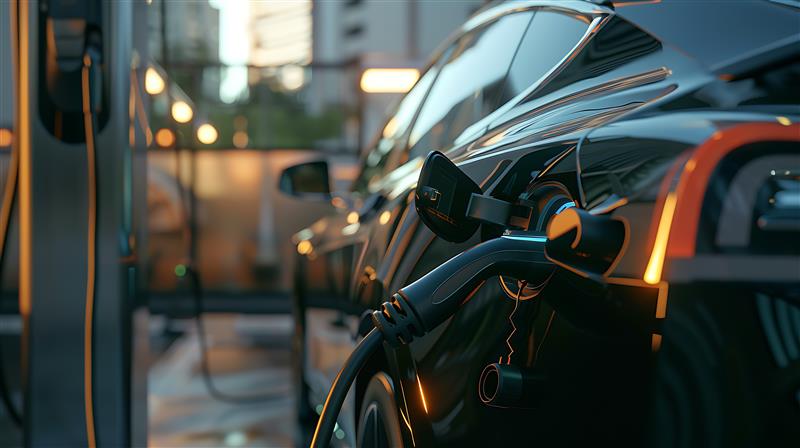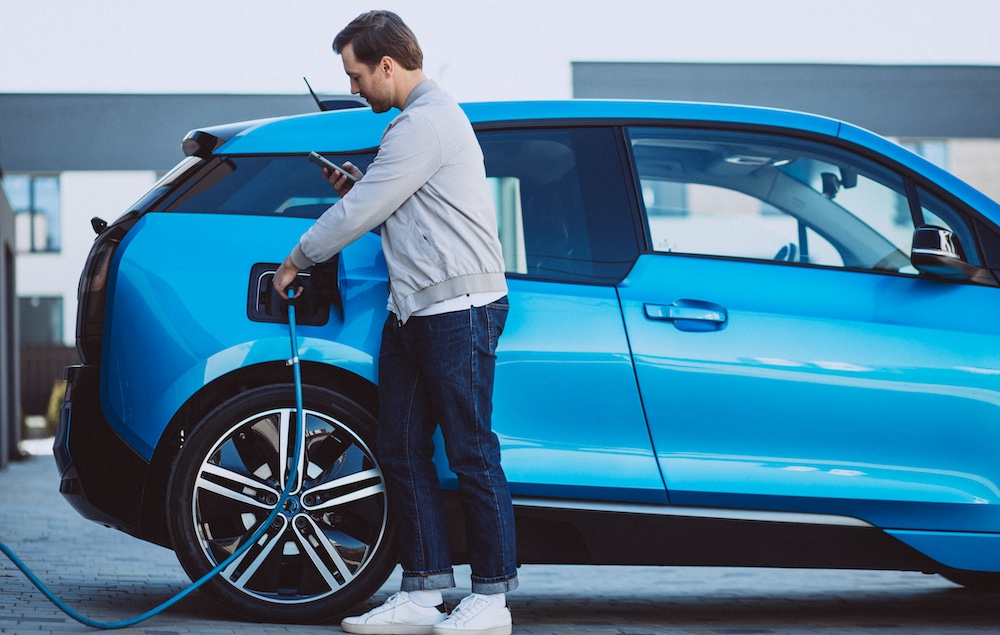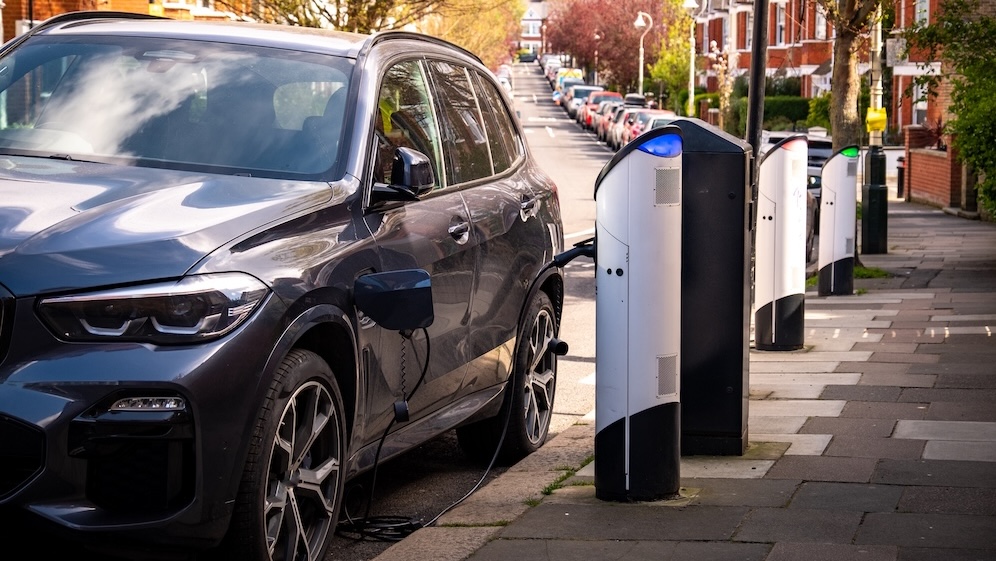EV FAQs: Answering everyday questions about electric vehicles
This EV FAQ answers the most common questions about electric vehicles, from EV myths about range and cost, to the truth about EV battery lifespan and safety. Modern EVs can travel up to 300 miles per charge, cost less to maintain than petrol cars, and offer long-term reliability for UK drivers.
As EV adoption accelerates across the UK, many drivers still have questions about range, charging and everyday EV reliability.
This EV FAQ guide answers common questions, provides practical EV facts and helps debunk myths that can make switching to an electric vehicle seem daunting.
We’ll also share everyday EV tips to help reduce the cost of ownership and make the experience of owning an EV easier and more enjoyable.
Let’s start by addressing some of the most common EV myths and misconceptions.
Common EV myths and questions: the truth about EVs
From range anxiety to safety, there are plenty of EV myths circulating online. Here’s the truth about EVs, based on fact and real-life experience.
Do EVs have enough range?
Range anxiety is common when switching from an internal combustion engine (ICE) vehicle to an EV, particularly as some early electric models did have a significantly lower range than petrol or diesel vehicles.
However, as of 2025, most EVs travel up to 300 miles on a single charge, debunking common EV myths around range anxiety. While this is less than many ICE vehicles, which can travel up to 400 miles on a full tank, the range of EVs is still more than enough for most UK drivers, who travel around 135 miles per week on average. It’s worth noting that some longer-range EV models on the market can reach up to 400 miles, and manufacturers are continuing to develop batteries capable of even greater distances.
Is EV performance as good as ICE vehicles?
Performance myths surrounding EVs are also common, with many questioning how they compare with ICE vehicles. However, the way that electric vehicles are designed can, in fact, lead to higher performance.
A lesser-known fact about EVs is that their electric motor allows them to reach maximum torque almost instantly, resulting in faster acceleration. Unlike petrol and diesel engines, which require a build-up of revs to achieve the same effect.
This performance advantage can be especially useful for driving that involves regular stopping and starting, such as city driving.
Are EVs safe?
Despite common EV myths around safety, electric vehicles are very safe. Most are fitted with advanced safety features, such as automatic emergency braking, to help minimise the impact of driver error. They’re also equipped with battery management systems (BMS) to prevent overheating, which, combined with the lack of combustible fuels, makes EVs 20 times less likely to catch fire than petrol or diesel vehicles.
Are EVs reliable?
Electric vehicles rely on fewer mechanical components than ICE vehicles, which increases EV reliability. Research published in Nature Energy shows that the average lifespan of an EV is over 18 years, matching that of petrol vehicles and demonstrating long-term EV reliability.
Are EVs expensive to buy and run?
The truth about EVs is that they are, on average, more expensive upfront than ICE vehicles, mainly due to the advanced technology and specialist materials required to manufacture them.
Despite this, the overall cost of ownership for an EV is usually lower than that of a petrol or diesel vehicle. Reduced charging costs, combined with lower servicing and maintenance expenses, can offset the initial higher purchase price.
Facts about EVs
These facts about EVs highlight the environmental, financial and practical benefits of electric vehicle ownership in the UK.
- Charging an EV at home can cost as little as 3p per mile (compared to 13p to 17p per mile to fill a tank with petrol or diesel).
- The cost of ownership is reducing rapidly for EVs, with purchase premiums decreasing by 12% between 2024 and 2025.
- EV batteries come with a manufacturer’s warranty (usually eight years), with most batteries lasting for 10-20 years.
- Over five years, servicing an EV costs an average of £1,687 less than servicing an ICE vehicle.
- EV maintenance costs 23% less than ICE maintenance over a three-year period.
- EVs have a lower environmental impact from emissions, making them exempt from Clean Air Zone charges.
- The number of public charging stations in the UK is expected to double between April 2025 and April 2026, supporting faster, more reliable access nationwide.
- EV reliability is now matches that of ICE vehicles, with an average lifespan of over 18 years or 124,000 miles.
EV battery myths debunked
The idea of a vehicle running purely on battery power instead of a traditional engine can seem daunting, leading to many EV battery myths. Here’s the truth about EVs and their batteries.
EV charging myths
Some of the most common hesitations around EVs relate to charging myths. In particular, it’s believed that electric vehicles take an inconveniently long time to charge, with more than one in four (28%) of non-EV drivers claiming it takes more than four hours . The truth about EVs and charging speed, however, is that it depends on several factors, including the size of the battery and charger type.
Charging an EV at home using a wall box can take several hours as the power output is generally lower. Many EV drivers charge their vehicles overnight so that the battery is ready for the morning.
Many public chargers, however, can deliver higher outputs for superfast or rapid charging, which can take as little as 30 minutes. While regularly using these faster charging speeds isn’t recommended due to potential long-term effects on the battery, they’re available when you need a quicker top-up – contrary to EV battery myths.
EV battery lifespan
Another common EV battery myth is that the average battery lifespan is below five years. Our research confirms this, with battery lifespan concerns being the second biggest blocker to adoption.
In reality, EV batteries are designed to last for as long as the vehicle itself – typically 10-20 years. Manufacturers usually provide a warranty for at least the first eight years, which covers the cost of replacing the battery should a fault develop.
The cost of replacing EV batteries
One EV battery myth suggests that replacement costs make EVs unaffordable. While EV batteries can be expensive, sometimes reaching up to £8,000, reliability improvements, long warranties and extended lifespans mean that a battery replacement is very rarely required, especially for new vehicles.
EV battery safety
Due to disproportionate media coverage, EV myths often claim that electric vehicles catch fire more frequently due to battery issues.
In reality, EVs are far less likely to catch fire than their ICE counterparts. This is because of the lack of combustible fuels and the extensive safety measures that continuously monitor the battery. These includes thermal management and fire-retardant materials.
With regular EV maintenance and careful charging habits, EV reliability and safety remain in line with petrol and diesel vehicles.
Everyday EV tips for new owners
Debunking common EV myths and highlighting the facts about EVs, should help boost your confidence in owning an electric vehicle.
While their built-in safety features and technology protect EV reliability, following some everyday EV tips can help reduce the cost of ownership and improve performance even further.
EV charging best practice and maintaining battery health
Although most EV battery myths are false, the way you charge your electric vehicle can have a significant affect EV reliability and safety.
Everyday EV charging tips include:
- Check all charging equipment and cables for wear, and don’t use damaged items.
- Only use charging stations and equipment compatible with your EV.
- Avoid using superfast chargers too frequently, as this can reduce your battery’s lifespan.
- Reduce range anxiety by planning routes with compatible public chargers using platforms like Zapmap.
- Monitor your EV’s battery management system for signs of degradation or reduced battery health and ensure appropriate maintenance or repairs to maintain EV reliability.
- Remember: despite popular EV battery myths, it’s safe to charge your EV in wet weather.
Tips for reducing cost of ownership and increasing efficiency
EV owners can keep costs low with a few everyday practices that increase efficiency and performance.
- Where possible, charge your EV at home to avoid additional VAT charges and minimise costs.
- Have your EV serviced regularly (following manufacturer guidance) to maintain vehicle health and reduce long-term maintenance expenses.
- Make use of regenerative braking, which slows down the vehicle by reversing the electric motor when you lift off the accelerator, recycling kinetic energy back into electricity.
Conclusion: EV grants and incentives
While many EV myths continue to circulate, the evidence shows that EVs are safe, reliable and cost-effective to own.
With this EV FAQ guide, we’ve tackled common misconceptions and revealed the truth about EVs, including EV facts, battery lifespan and cost of ownership insights that help drivers make confident decisions.
For more information on charging, grants and insurance explore our EV Hub.










